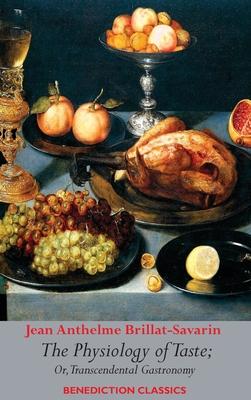"The Physiology of Taste" by Jean Anthelme Brillat-Savarin, initially published in 1825, is a culinary masterpiece that delves into the history, practice, and philosophy of eating. It is recognized as beautifully written. Brillat-Savarin's unique storytelling style explores the sensual art of fine dining, which is an expression of ourselves. The book looks at the relationship between food and "the pleasures of the table"; all the pleasures associated with eating together and concludes that consuming food transcends mere sustenance-it is a form of transcendental experience available to all classes of society.
Brillat-Savarin is remarkably far-ranging in making connections. His musings touch on all the senses, human nature and society, being a guest and a host, the essential constituents of food from the animal and vegetable kingdoms, being a gourmand, digestion, rest, sleep, dreams, fasting and death. Of course, there are some remarkable recipes.
Perhaps most startling for the early 17th century are the two chapters on obesity-its "inconveniences," causes, and prevention. He explicitly observed that sugars and carbohydrates reduce physical performance and lead to obesity.
The Physiology of Taste was hugely successful when first published in 1825 and has been in print continuously since then. It has been translated into English, German, Russian, Italian, Spanish and Swedish.
The Physiology of Taste is "still the most civilized cookbook ever written" (The New Yorker). It is a unique book on all aspects of eating: wide-ranging, informative, inspiring, beautifully written, and entertaining.
Jean Anthelme Brillat-Savarin (1755-1826) was a French lawyer, judge and politician. He fled France for two years and toured America, giving French and violin lessons and gathering friends and anecdotes. His was an inquiring mind with both a scientific and a philosophical bent. As a bachelor, he invested much of his time, wealth, and passion into dining, entertaining, and dwelling on these matters. The result is this masterpiece. A French cheese and a French cake bear his name.
